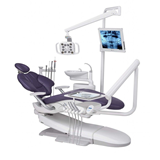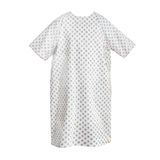Joseph Ana, a former commissioner for health in Nigeria, argues that the severe shortage of skilled health workers in some countries means traditional birth attendants have a valuable place.
In some countries less than 20% of births are attended by skilled health workers, he says. The problem is worsened by health workers being concentrated in cities and capitals when most of the developing world population resides in rural areas.
He acknowledges that traditional birth attendants have no formal training and some are illiterate, but says "they are ubiquitous and accessible at all hours of the day and night." Evidence also shows that when traditional birth attendants are banned, maternal mortality rises.
Even the World Health Organisation suggests that, until there are sufficient numbers of skilled midwives who are ready to live in villages, the best policy is to identify traditional birth attendants, train them to recognise danger signs during pregnancy and labour, provide them with basic sterile delivery kits, and monitor their practice.
Ana argues that, where traditional birth attendants have been trained and integrated into existing health systems, they have been seen as stakeholders in the effort to improve maternal health, particularly in difficult to reach remote villages with no skilled health worker. "In fact, it should be considered unethical to stop a lay person from assisting in such circumstances, especially one with many years’ experience," he concludes.
But Kelsey Harrison, a retired gynaecologist and obstetrician, who worked in Nigeria for 38 years, believes that traditional birth attendants do more harm than good and that they have little or no place in a functioning healthcare service.
He argues they are "too old and therefore too set in their ways to adapt to modern healthcare methods" and points out that "they cannot treat any of the principal causes of maternal death." Most importantly, he says: "As most are illiterate, they cannot keep reliable records of their activities, and without such records, audit becomes impossible ... Their use is a distraction in that it seeks to manage extreme poverty instead of working to eliminate it."
Within sub-Saharan Africa, there is growing realisation that things have got to change, writes Harrison. "It stands to reason that decisions must be made with an eye to the future …and traditional birth attendants have no place in this future."
He adds: "Better management of the region’s abundant natural resources combined with a change in attitude towards the poor and women – helping rather than exploiting them – will surely work wonders."






